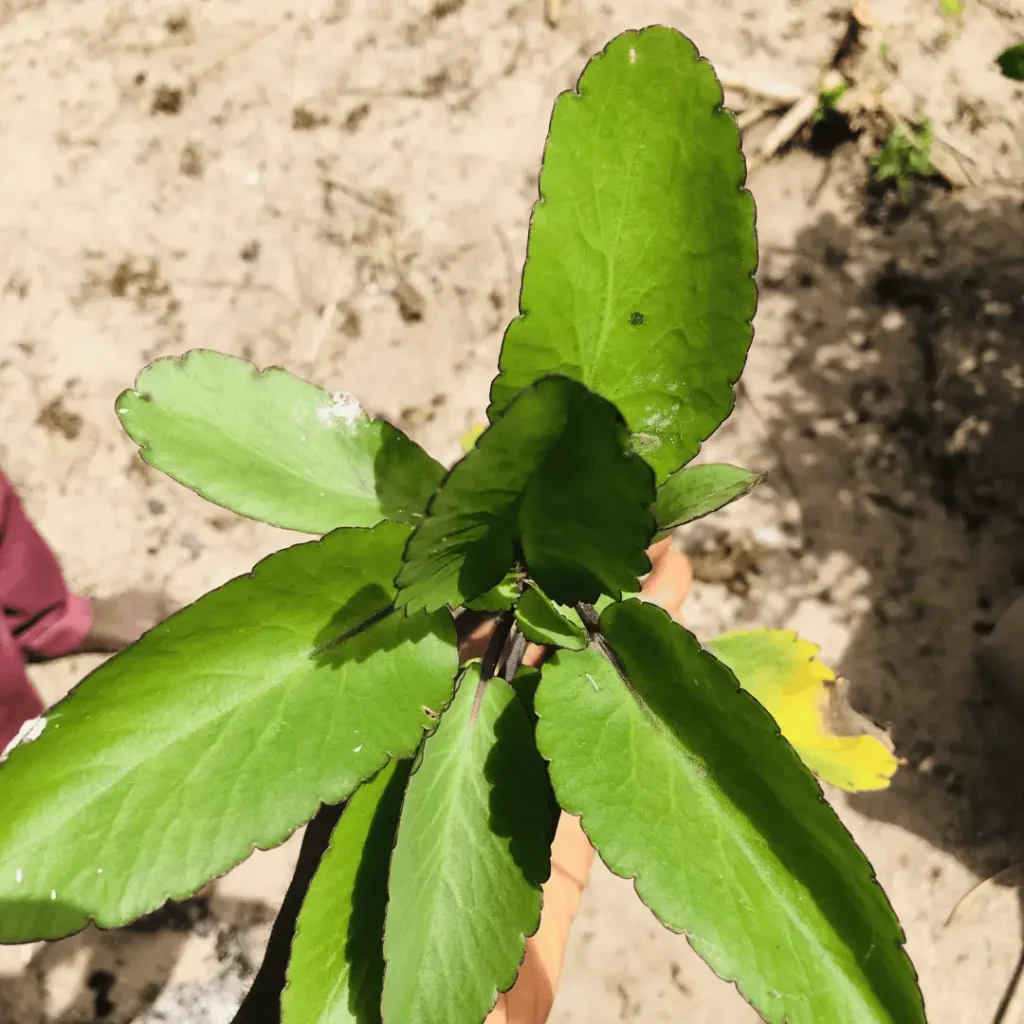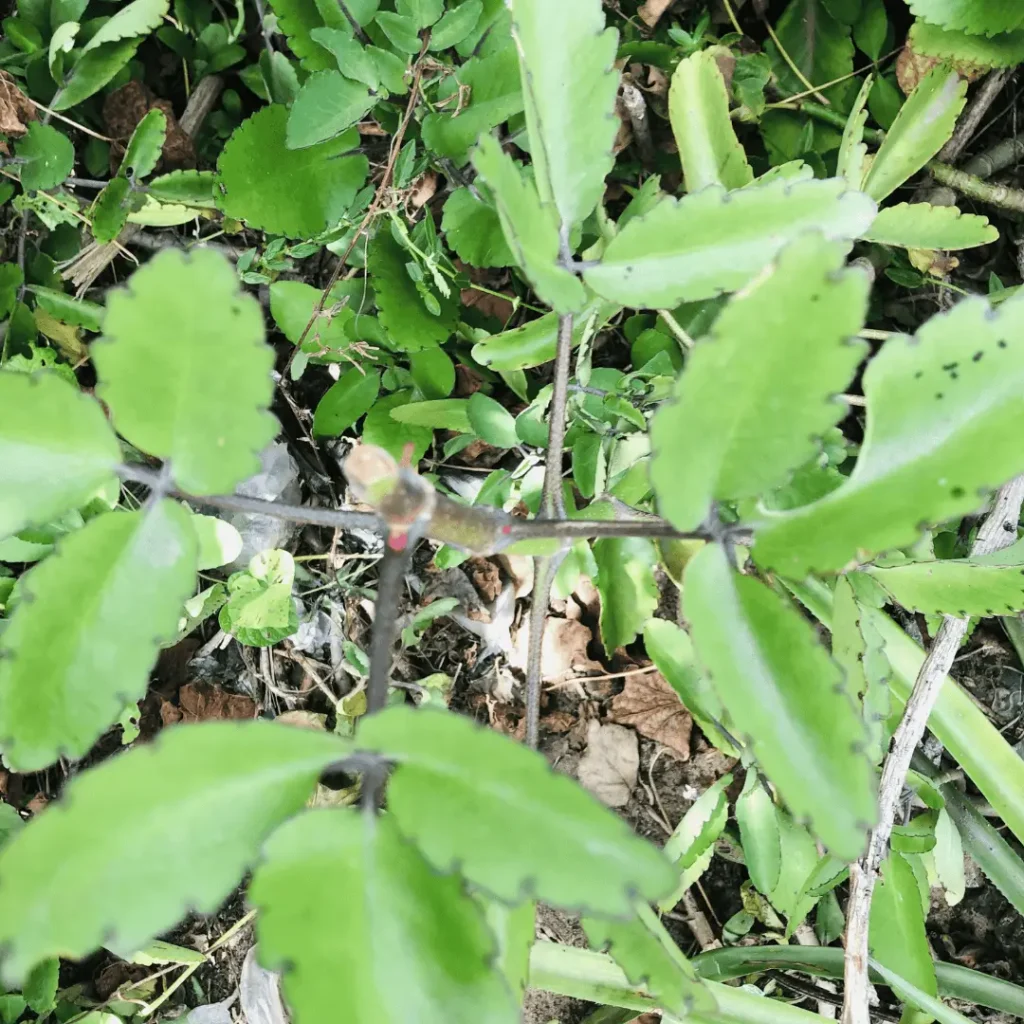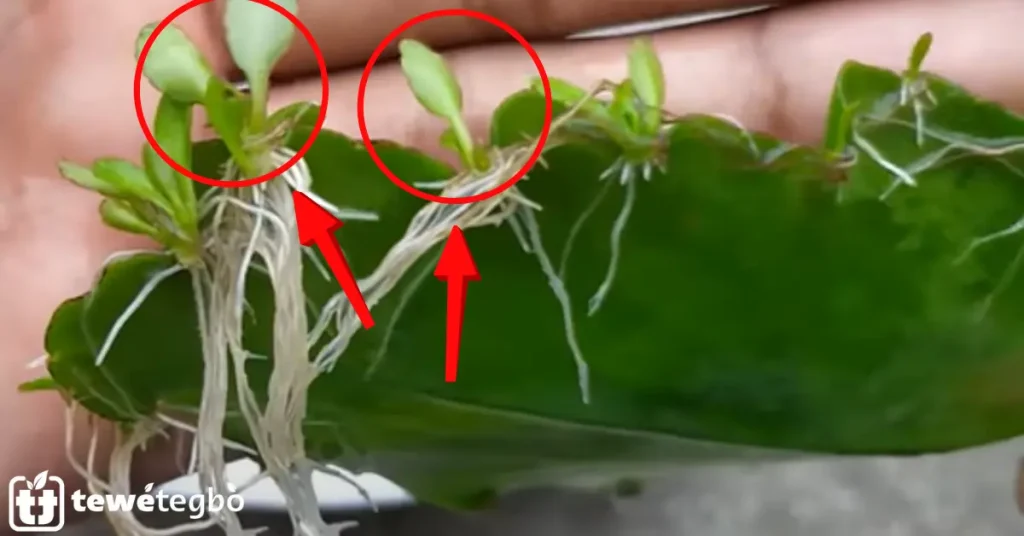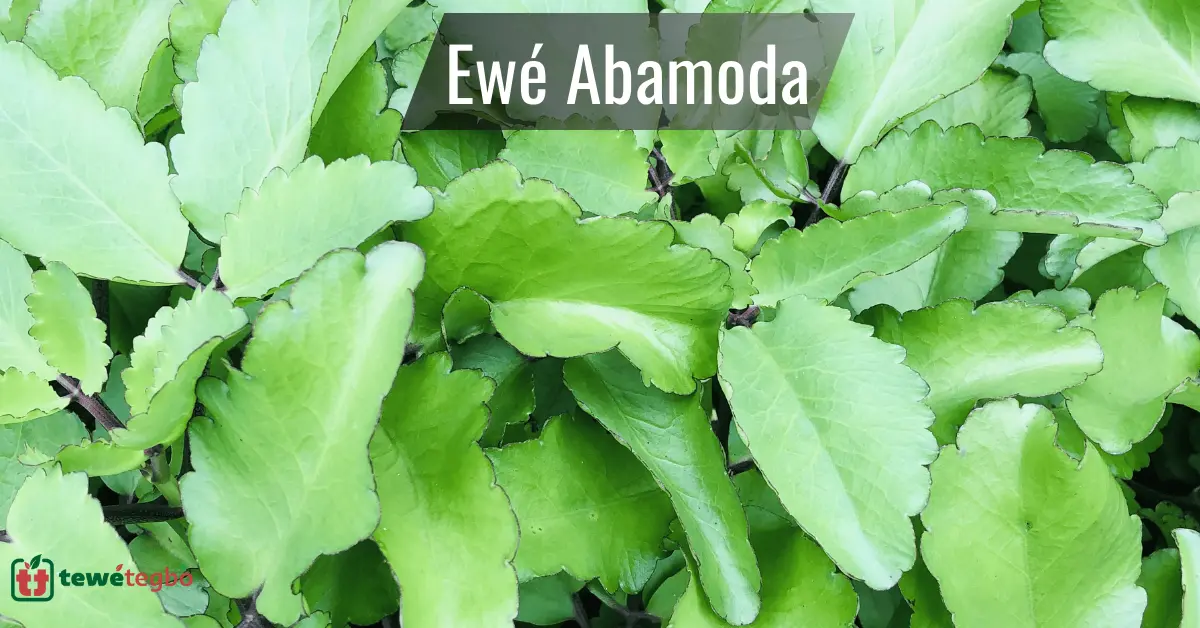Ewe Abamoda (Miracle Leaf) – Gbogbo Iwulo Ewe Abamoda
Ewe Abamoda, also known as Miracle Leaf, is a herb Nigerian elders used in traditional practices to help with conditions like high blood pressure, palpitations, inner ear pain, ulcers, cough & asthma, and even open wounds.
This post breaks down the traditional health benefits of Ewe Abamoda, exactly how our elders used it (still just as effective today), and the right way to prepare it.
It might sound surprising that a single leaf is linked to so many health benefits…
But those who understand traditional herbs know Ewe Abamoda has been trusted in traditional remedies long before modern medicine took over in most homes.
In this guide, I’ll show you:
Read this carefully… because once you understand what this leaf has been used for, you may never look at it the same way again.
How to Recognize Ewe Abamoda (Miracle Leaf) — with Photo and Video
Watch this short clip to listen to the pronunciation of ewe abamoda leaf
Ewe Abamoda Picture (Aworan Ewe Abamoda)
Here is what Ewe Abamoda leaf looks like. This photo can help you identify the plant more easily (especially since it’s often confused with Ewe Odundun).
If you’re searching for Abamoda leaf picture, the images below show its typical appearance.


Quick Note: A lot of people mix up Ewe Abamoda with Ewe Odundun. They are different plants, different powers. I show the exact differences (with pics) in another post so you never mix them up.
What is Abamoda leaf in English (With Igbo & Hausa Names)?
|
Category |
Info |
|---|---|
|
English Name |
Miracle Leaf, Life Plant, Leaf of Life |
|
Local Name |
Yoruba: Ewe Abamoda |
|
Scientific Name |
Bryophyllum pinnatum |
|
Plant Type |
Succulent healing herb |
|
Season |
Year-round, loves moist shade |
Where Ewe Abamoda Grows in Nigeria — And Where to Find It Fast
|
Region |
Common Location |
|---|---|
|
Southwest Nigeria |
Oyo, Ogun, Osun, Lagos, Ekiti, Ondo |
|
Southeast Nigeria |
Anambra, Abia, Imo |
|
South-South Nigeria |
Delta, Edo, Cross River |
|
North Central (urban areas) |
Kwara, Kogi (in home gardens and herbal stalls) |
Iwulo Ewe Abamoda (Miracle Leaf) — Health Benefits & Uses (Quick Overview)
Ewe Abamoda fun Eje Riru ati Ifunpa Giga (How to Use Abamoda Leaf for High Blood Pressure):
| Part Used | Method | Usage |
|---|---|---|
| Leaf | – Eaten raw – Eaten with roasted groundnut – Blended and mixed with milk | The leaf is taken about three times a week, either chewed raw, eaten with roasted groundnut, or blended and mixed with milk. |
Ewe Abamoda ati Ata Ire fun Ogbe Inu (How to Use Abamoda Leaf & Alligator Pepper For Ulcer & Internal Healing):
| Part Used | Method | Usage |
|---|---|---|
| Leaf | Boil fresh, washed leaves with 5 crushed Ata Ire seeds in water for 7–10 mins | Drink 1 cup warm, morning and night on an empty stomach for 7–14 days |
| Leaf | Pound leaves into a soft paste, mix with small amount of powdered Ata Ire and a little honey or coconut water | Take 1 tablespoon morning and night for 7–14 days |
Ewe Abamoda fun Eti Didun (How to Use Abamoda Leaf Juice for Inner Ear Pain Relief):
| Part Used | Method | Usage |
|---|---|---|
| Leaf | Warm the leaf by holding it close to a fire, then extract the juice | Drop the juice into the affected ear to relieve inner ear pain |
Ewe Abamoda fun Iko (How to Use Abamoda Leaf for Cough & Asthma):
| Part Used | Method | Usage |
|---|---|---|
| Leaf | Boil 5 leaves in 1 cup of water for 10 minutes | Drink warm, morning and night |
Ewe Abamoda fun Egbo (How to Use Abamoda Leaf for Wound Healing):
| Part Used | Method | Usage |
|---|---|---|
| Leaf | Crush the leaf into a paste | Apply directly to clean wound. Cover with cloth, repeat daily |
How to Prepare and Use Ewe Abamoda Leaf (Step-by-Step)
This explains how to prepare and use Ewe Abamoda leaf as a traditional remedy for managing high blood pressure, Ulcer & Internal Healing, Ear Pain, Cough & Astma and Wound Healing following methods used by elder Nigerians.
For High blood Pressure:
1. Collect Ewe Abamoda leaves from a clean source.
2. Rinse the leaves thoroughly using clean water to remove any dirt or dust.
3. Choose Your Method:
– Chew the leaf raw or
– Eat it together with roasted groundnut or
– Blend the leaf and mix with milk for drinking.
4. Use any of the above methods up to three times a week for traditional support in managing high blood pressure.
Materials: Fresh Ewe Abamoda leaves |
Roasted groundnut (optional) |
Milk (optional)
For Ulcer & Internal Healing:
1. Get Your Ingredients:
– Ewe Abamoda leaves (Miracle Leaf).
– 5 seeds of Ata Ire (Alligator Pepper)
2. Rinse the Abamoda leaves thoroughly and crush or grind the Ata Ire seeds lightly.
3. Put the leaves and crushed seeds in a pot then add 2 cups of water and boil for 7–10 minutes.
4. Strain and Drink:
– Strain the water into a clean container.
– Drink 1 cup warm in the morning and another cup at night.
– Always take it on an empty stomach.
5. Repeat for 7–14 Days:
– Avoid acidic foods, pepper, alcohol during treatment.
– Continue for at least 7 days for results.
– Some may see full relief in 10–14 days
Materials: Ewe Abamoda leaves (Miracle Leaf) | 3–5 seeds of Ata Ire (Alligator Pepper)
Important Note: Ulcer patient can not use Ata Ire (Alligator pepper) alone.
For Inner Ear Pain Relief:
1. Hold Ewe Abamoda leaf close to a small fire or heat source for a few seconds until it becomes warm and slightly wilted or soften.
2. Squeeze the warmed leaf gently to collect the juice into a clean spoon or container.
3. Using a clean cotton board or dropper, place a few drops of the leaf juice into the affected ear.
Materials: Ewe Abamoda leaf
For Cough & Asthma:
1. Pick 5 fresh Ewe Abamoda leaves (also known as the miracle leaf or life plant).
2. Put the leaves in a pot with 1 cup of water.
Boil for 10 minutes.
3. Allow the boiled mixture to cool down a bit.
Make sure it’s still warm but safe to drink.
4. Drink warm, morning and night.
Repeat daily as needed for cough or asthma relief.
Materials: Ewe Abamoda leaf
For Wound Healing:
1. Wash the leaves and crush them into a smooth paste using a clean stone, blender, or mortar and pestle.
2. Gently wash the wound with clean water to remove dirt.
3. Apply the crushed leaf paste directly to the clean wound.
4. Cover the area with a clean cloth or bandage to keep it protected.
5. Repeat the application once a day until the wound heals.
Materials: Ewe Abamoda leaf
Ewe Abamoda fun Asiri Bibo (Why People Believe Ewe Abamoda Can Attract Money)
In Yoruba culture, plants aren’t only valued for their medicinal power but also for their symbolic energy.
Ewe Abamoda (miracle leaf) is a hardy plant that grows quickly, survives even when cut, and can sprout new life from a single leaf.

Because of this unusual ability to “multiply” and “renew,” many traditions associate it with abundance, prosperity, and protection.
Over time, rituals developed around it for attracting luck or money (asiri bibo).
While these symbolic uses form part of Yoruba cultural heritage, there is no scientific proof that Ewe Abamoda itself can bring wealth or luck.
However, its medicinal benefits are well documented: it has been used for high blood pressure, coughs and so on.
If you see it in a spiritual way, treat it as a part of Yoruba tradition.
But for physical results, rely on its proven medicinal uses and combine that with real steps like learning a skill, or starting a small business.
When Ewe Abamoda Works Best
When Ewe Abamoda Doesn’t Work Well
Abamoda Leaf side effect
My Personal Experience with Ewe Abamoda (Miracle Leaf)
If you’re dealing with stomach ulcers and looking for something natural that actually works, this is what I recommend:
Chew fresh Ewe Abamoda leaves with groundnut on empty stomach in the morning.
That’s it. No boiling, no mixing. Just chew it raw with groundnut.
I first suggested this to a few of my neighbours. They tried it and by the next morning, they were already talking about how it helped them feel lighter and more relaxed.
Since then, they’ve been picking the leaves from my garden regularly (sometimes without asking but that’s another story).
Answers to Common Questions About Ewe Abamoda
Can pregnant women use Ewe Abamoda?
No. Traditional healers often warn against it during pregnancy—it may stimulate the womb and increase risk of miscarriage.
How long before I see results when using it for ulcers?
Most people feel relief within 3–5 days of daily use. But it depends on your body and the preparation. Stick to the correct method—washed, blended, and strained.
Can children take Ewe Abamoda (Miracle Leaf)?
Yes, but in small, diluted doses.
Is Abamoda the same leaf as Odundun
No, Abamoda is different from Odundun. This post clarifies the confusion (with photos)
Can I mix Ewe Abamoda with other herbs?
Absolutely. It’s often used with Ata Ire (Alligator pepper) for heart related disease, with Dogonyaro (Neem) for malaria and with Orombo Wewe (Lime) + Alubosa Ayu (Garlic) for womb cleansing.
How can I plant Ewe Abamoda (Miracle Leaf)?
It’s one of the easiest herbs to grow (even if you’ve never planted anything before).
1. Break off a healthy leaf from an existing Abamoda plant
2. Place it flat on moist soil (don’t bury it)
3. Leave it in a shady spot with indirect sunlight
4. In a few days, you’ll see tiny baby plants sprouting from the edges of the leaf
5. Once they’re 1–2 inches tall, replant them individually in garden soil or pots
Still Curious? Here’s How to Ask Me Directly on WhatsApp
Want to know if Ewe Abamoda is right for your condition or explore other Yoruba herbs that may help?
Or would you prefer my detailed Yoruba voice note or short video explanation (with real-life use cases, proper dosages, and a few hidden tips I can’t openly share here)?
👉 Just tap here to message me on WhatsApp. I’ll reply to you personally.
Let me reconnect you to nature’s pharmacy.


